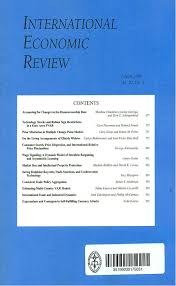
\van der Ploeg\, F. (2010). Voracious transformation of a common natural resource into productive capital International Economic Review, 51(2):365--381.
-
Affiliated author
-
Publication year2010
-
JournalInternational Economic Review
I analyze a power struggle where competing factions have private financial assets and deplete a common stock of natural resources with no private property rights. I obtain a feedback Nash equilibrium to the dynamic common-pool problem and obtain political variants of the Hotelling depletion rule and the Hartwick saving rule. Resource prices and depletion occur too fast, so substitution away from resources to capital occurs too fast and the saving rate is too high. The power struggle boosts output, but depresses sustainable consumption. Genuine saving is nevertheless zero in a fractionalized society. World Bank estimates may be too optimistic.